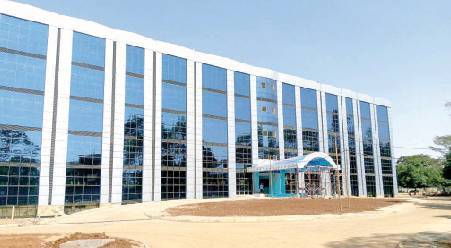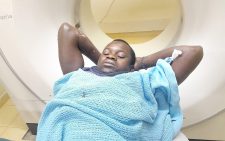New police forensic lab game changer in fight against crime

by Zadock Angira
@PeopleDailyKe
War against crime is expected to get a major boost when President Uhuru Kenyatta officially launches police forensic laboratory whose construction began two decades ago.
The ceremony to be held at the Directorate of Criminal Investigations (DCI) headquarters on Monday, will see the much-hyped laboratory start operations immediately.
It is expected to fast-track investigations of serious crimes including terrorism, murder, robbery with violence, cybercrime and rape, among others, besides unraveling several cases, some of which had been difficult to crack.
DCI boss George Kinoti says the lab will be used to scientifically analyse samples and exhibits that would form part of evidence against suspects in court.
It will include cybercrime analysis, chemical analysis, forensic ballistics, scene-of-crime analysis, biometric and fingerprints analysis, and bomb and explosives analysis.
Others will be DNA testing, photographic, video and audio analysis, cybercrime, biological and chemical testing, and quality control, among others.
Kinoti said completion and opening of the new laboratory will be a game-changer in the fight against crime, which, he said, had taken a new trend in terms of technology and sophistication.
“The laboratory will enable us to conduct proper investigations and help us to back up what we have been doing with scientific proof. The success rate in prosecution of cases will obviously go up,” Kinoti told People Daily yesterday.
Laboratory, he noted, will be a gam- changer in the Criminal Justice System since it will ensure court cases are backed by well-documented evidence, enhancing chances of successful prosecutions.
Plan to set up the lab began in the 1990s under the late President Daniel arap Moi but failed due to corruption scandals. The initial project to build a Sh4.1 billion facility stalled in 2003 after it was linked to Anglo Leasing scandal projects. Physical structure was completed in late 2015 after which the fixing of the requisite equipment begun. Already a number of detectives have been trained to ensure their skills are in tandem with advanced technology.
Among the crucial departments at the lab is the cybercrime section, whose main functions include forensic examination of computer and mobile phones; maintenance of lab processes of acquisition, archival and analysis; maintenance of inventories of digital evidence; analysis of deleted and active files; location and analysis of data in ambient data sources, and recovery of deleted or encrypted emails, SMS, videos, internet sites.
Skills of applicants
Other functions include uncovering passwords, forensic SIM card analysis, extraction of data from mobile phones, and presentation of expert forensic evidence in court by officers attached to the department.
The National Police Service Commission also said the service needed specialists to be deployed to the lab, adding that unlike in the past, recruitments will be skills-based, not just focusing on the numbers but the skills of applicants.
“We have the new forensic laboratory at the DCI headquarters and the Government Chemist, which works closely with the Crime Research Centre. We need skilled officers there,” Interior Cabinet Secretary Fred Matiang’i said in an earlier interview.
In an earlier interview with People Daily, the DCI boss said said days when macho-looking detectives moving around the streets searching for criminals are almost coming to an end following the completion of the police forensic laboratory.
Crime scene
The Locard’s exchange principle holds that a criminal will bring something into the crime scene and leave with something from it, and that both can be used as forensic evidence. Last year, the German Government donated Sh26 million forensic lab equipment to the DCI to hasten investigation process. They included cameras and simulation crime scene tools.
DCI is also working closely with other agencies including the Ministry of Health in crime prevention and detection.
Last week, the British High Commission donated Sh4.5 million forensic medical equipment to the ministry to boost investigations into terror attacks, especially those resulting into serious injuries and deaths.
Equipment will be vital in the investigation and eventual prosecution and includes a mobile mortuary and post-mortem equipment and will enable prompt investigations both at the scene of the attack and even in the hospitals and mortuaries.
British High Commissioner Jane Marriott yesterday said the equipment will increase capacity of the Pathology and Forensic Unit at the Kenyatta National Hospital, improve disaster response and support forensic investigation.










